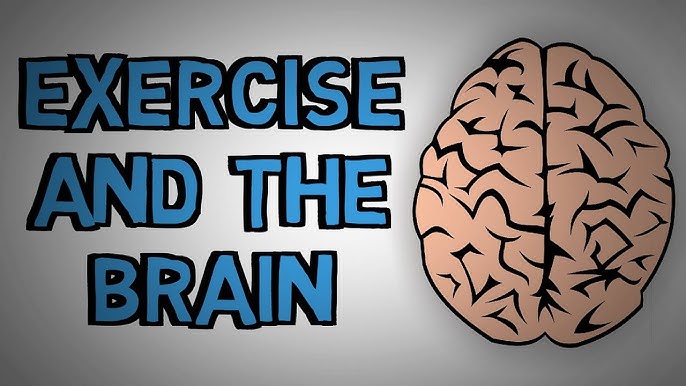Feeling Good Inside and Out: How Your Workouts Can Boost Your Mood
How Physical Training Enhances Mental Wellbeing
In the fast-paced and demanding world we live in, the importance of mental health is gaining recognition as a critical component of overall wellness. Alongside traditional therapeutic approaches, an emerging trend is highlighting the symbiotic relationship between psychological health and physical training. This holistic approach recognizes that taking care of your body can have profound effects on your mind, and vice versa.
The mind-body connection is a complex relationship that underscores the interdependence of mental and physical health. Physical training has been proven to have a direct impact on emotional stability by promoting the release of endorphins, often referred to as “feel-good” hormones. Engaging in regular exercise helps reduce stress, anxiety, and depression, while also improving cognitive function and sleep quality.
Exercise as a Stress Buster
Stress is an inevitable part of life, but how we manage it can significantly impact our psychological health. Physical training acts as a natural stress buster, helping to regulate the body’s stress response system. Cardiovascular exercises, such as running or cycling, can reduce cortisol levels, the hormone associated with stress, while strength training provides an outlet for releasing built-up tension and frustration.
Combatting Anxiety and Depression
The World Health Organization reports that globally, over 264 million people suffer from depression, and more than 300 million people experience anxiety disorders. Physical training has shown remarkable efficacy in mitigating the symptoms of these mental health conditions. Exercise stimulates the production of neurotransmitters like serotonin and dopamine, which play crucial roles in mood regulation. As a result, individuals engaging in regular physical activity often report improved mood and a decreased likelihood of experiencing depressive episodes or anxiety attacks.
Enhancing Cognitive Function
Beyond its impact on emotional wellbeing, physical training has been linked to enhanced cognitive function. Regular exercise has been shown to improve memory, attention, and overall cognitive performance. This is attributed to increased blood flow to the brain, the release of growth factors that support the health of brain cells, and the positive effects of exercise on neuroplasticity – the brain’s ability to adapt and reorganize itself.
Building Resilience
Physical training not only contributes to the alleviation of emotional health issues but also plays a crucial role in building resilience. Regular exercise teaches individuals to set and achieve goals, fostering a sense of accomplishment and self-efficacy. This newfound confidence can extend beyond the gym, positively influencing an individual’s ability to cope with life’s challenges.
Incorporating Physical Training into Your Routine
To fully harness the benefits of the mind-body connection, health professionals are increasingly incorporating physical training into their treatment plans. This integrated approach recognizes that mental and physical wellbeing are inseparable and that addressing both aspects is key to achieving optimal health.
The profound connection between emotional resilience and physical training underscores the importance of adopting a holistic approach to wellbeing. Engaging in regular exercise is not just about sculpting the body; it’s a powerful tool for nurturing psychological health, reducing stress, alleviating anxiety and depression, enhancing cognitive function, and building resilience. Moreover, exercise fosters a sense of accomplishment and boosts self-esteem, empowering individuals to take control of their health. As society continues to embrace the integral relationship between mind and body, incorporating physical training into our daily lives becomes a proactive step towards achieving a balanced, fulfilling, and more resilient existence.
“Exercise and Mental Health: An Overview of Research” by James A. Blumenthal, Ph.D., published in the Annual Review of Clinical Psychology in 2019, provides a comprehensive review of the existing literature on the effects of physical exercise on emotional stability, particularly focusing on its impact on depression, anxiety, and cognitive function. The research highlights how regular physical activity can serve as a powerful intervention for improving mood, reducing symptoms of mental illness, and enhancing overall psychological wellbeing.
The study emphasizes the growing recognition of exercise as an essential component of treatment plans for individuals with mental health issues, supporting the notion that physical and mental health are deeply interconnected and should be addressed together in clinical practice.
This research underlines the importance of integrating physical exercise into eamotional health treatment strategies to achieve more holistic and effective outcomes.
Want to know more about The Gallery Gym? Visit our About Us page or check What We Offer .
#fitness #workout #fitnessmotivation #gym #fit #cardio #fitfam #weightloss #instafit #healthy #fitnessjourney #exercise #fitspiration #goals #weights #physique #fitnesscenter #transformation #exercises #weightlossmotivation #fitnessgym #fitnessclub #weightwatchers #fitnesscommunity #livelifelightfitness

Recent Comments